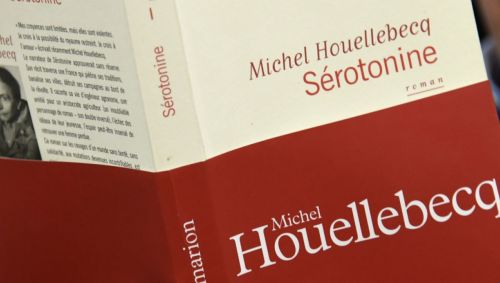Case study Thierry Baudet
To find out if Thierry Baudet is trying to diminish the feminist ideology within the Dutch politics, I have looked at one of his publications called: Houellebecq’s Unfinished Critique of Liberal Modernity, which is a review essay of the book Sérotine by Michel Houellebecq. In this essay he critiques the oeuvre of Houellebecq and he elaborates on his own thought concerning the matter at hand.

In this essay Baudet, on multiple occasions, claims that liberalism and the liberalist movement do not actually liberalize. Baudet in fact states that the freest people who have ever lived have also come to live the least meaningful lives. He goes to elaborate on this statement and adds: the more liberalized we become, the more we get enslaved by our own self-image. This, as expected, opposes the liberal body of thought. Not much later Baudet describes Houellebecq’s view on feminism, in a passage Baudet claims is “validated all around us”. Houellebecq claims that having children and working full hours are not compatible, which from a pragmatic standpoint could be seen as a reasonable issue. However his view does not take a feminist standpoint into consideration. He does not come up with a solution to release work load or divide maternity leave between the parents. No, Baudet justifies Houellebecq who goes on to put the blame of the demographic decline of Europe on the women not being able to balance these incredibly hard tasks. From the perspective of Thierry Baudet, the complete neglect of ‘the other’, in this situation the woman, is shown.
Houellebecq also states in the book that sexual and spiritual liberation are two obstacles that must be overcome. Baudet completes this narrative by posing a Houellebecq as some sort of hero. Baudet refers to Houellebecq’s’ statement as following:
“How encouraging to finally read a modern writer who takes the problem of sex seriously!”
In the passage in which Houellebecq states that ‘sadly’ a ‘committed’ relationship is not possible anymore in this day and age Baudet reacts as follows:
“This is the tragedy that has befallen us.”
All in all, it is clear to see the vision of Thierry Baudet. To reinstate the holy sanctity of a marriage would for example not give the woman the right to leave. To accept and applaud the way Houellebecq pins the problem of the European demographic decline on the liberalized women. To say to be free is to be enslaved by our own delusion. His demeanour in the essay is evident of his sexist thoughts and could be seen as masculine and androcentric.
One essay however would not contain sufficient evidence to conclude sexism in Baudet’s way of thinking. Therefore I bring up two interviews Baudet has done over the last ten years in which again, his sexist and masculine ways come to light.
First the interview with chief editor of the magazine Quote, Sander Schimmelpenninck. Baudet sits down in a man-to-man talk with Schimmelpenninck and they discuss different topics whilst enjoying some champagne. Once the topic of women comes up and the questionable number of high-paid women comes up. Baudet states:
“Ik weet wel dat vrouwen het over het algemeen minder excelleren in een heleboel beroepen en minder ambitie hebben. Vaak ook meer interesse hebben in gewoon meer familieachtige dingen enzo.” (translated: “I do know that women generally excel less in a lot of professions and have less ambition. Often also more interested in just more family-like things and stuff. ”). Which in itself is a highly debatable statement. This statement by Baudet exploded on social media and the interview is widely regarded as Baudet again outing his sexist masculine thoughts. Furthermore Baudet, in an interview on the Dutch tv-program De Wereld Draait Door, claims that women in general like to be treated with force. And that being forceful towards a woman does not in particular has to be a bad thing.
I have to slightly oppose myself because, however his thought process may appear sexist and masculine, in the party program of the FvD we read the following: “Alle mensen zijn fundamenteel gelijkwaardig, ongeacht geslacht, ras of seksuele gerichtheid.” (translated: all people are fundamentally equal, regardless of gender, race or sexual preference”) (“Wet Bescherming Nederlandse Waarden”). This is followed up on by saying that choice of partner is completely free and that forceful marriage should be punishable by law. In these few sentences, the FvD contradicts earlier statements made by Baudet. Also by acknowledging that all humas are fundamentally equal, he contradicts his earlier statements about women not being able to fulfil high-paying jobs.

